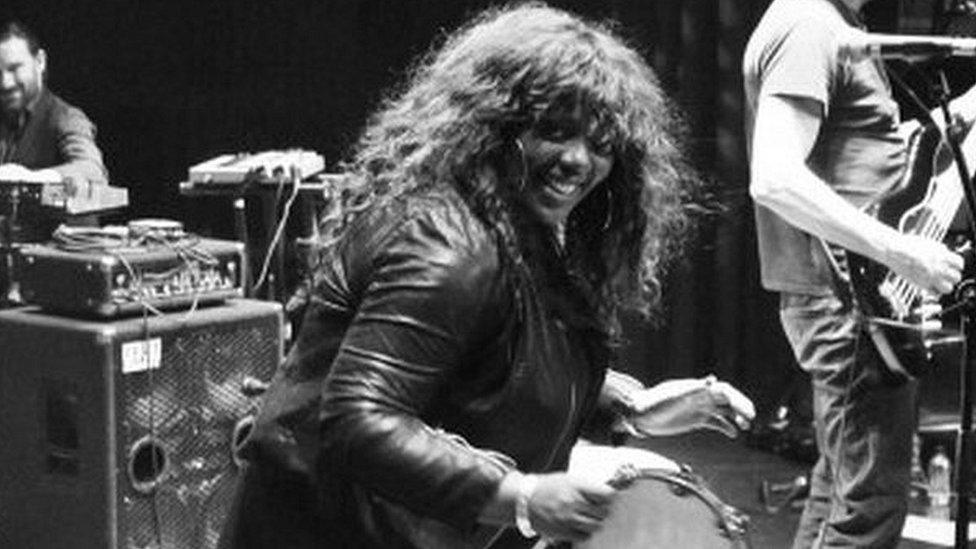Denise Johnson: Posthumous solo album finally puts singer centre stage
- Published
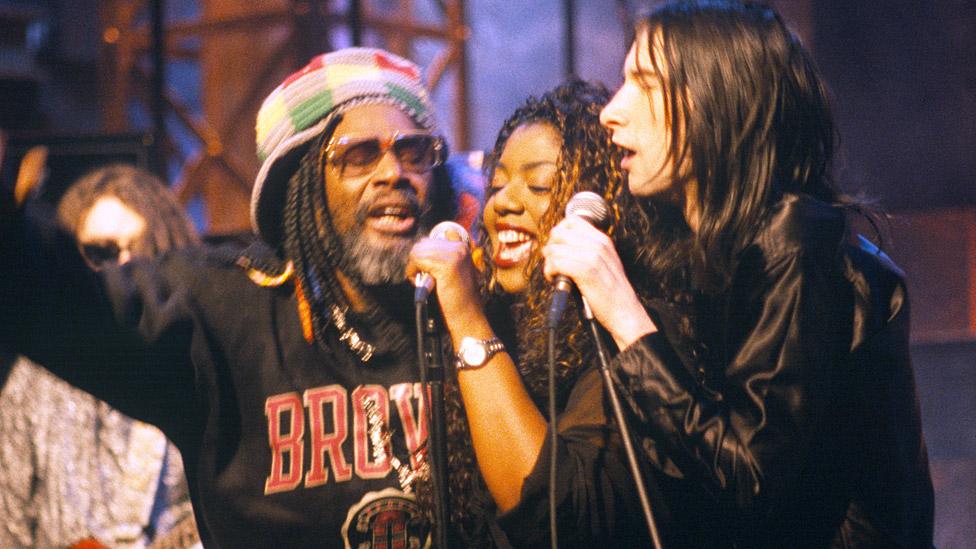
Denise Johnson on stage with George Clinton (left) and Primal Scream's Bobby Gillespie in 1996
After lending her stunning voice to bands like Primal Scream, A Certain Ratio and New Order for 30 years, this summer Denise Johnson was almost ready to release her debut solo album.
"It was her pet project for quite a few years," says best friend Sue Langford. "She was so excited.
"She was self-releasing it, so she did everything. She organised the production and she chose the artwork. She was really thrilled, proud, excited."
Then, at the end of July, Johnson died unexpectedly. She was 56.
Tributes flowed from stars like Primal Scream, Ian Brown, Johnny Marr, Bernard Butler, Peter Hook and 808 State. If their fans didn't know Johnson's name, they probably knew her voice from her guest and backing spots.
Now, Johnson's solo album is coming out posthumously on Friday. It is both a reminder of the depth and force of her soulful voice, and a fitting way to ensure her name is front and centre at last.
"It does feel a bit like a gift now that she's gone," says Langford.
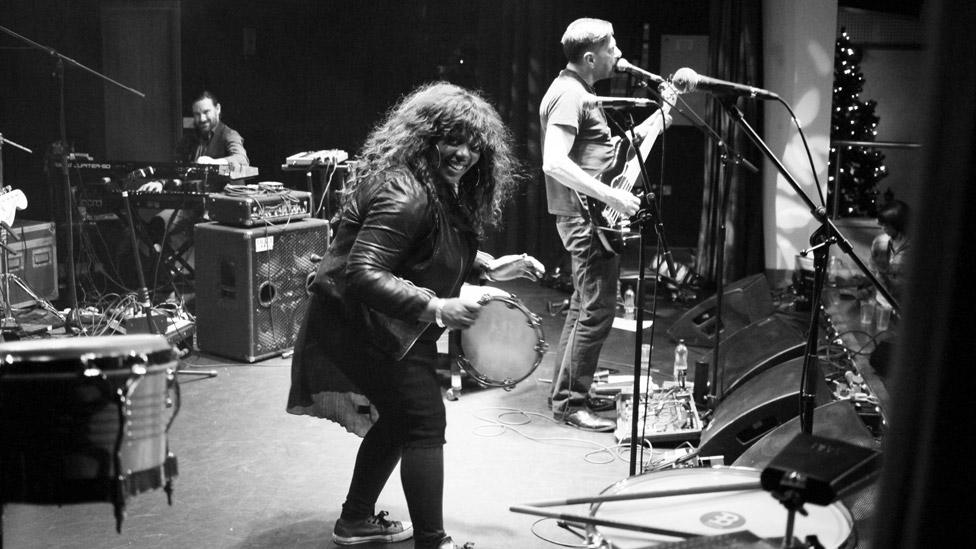
Johnson was best known for her vocals on tracks like Don't Fight It, Feel It and Free from Primal Scream's acclaimed albums Screamadelica and Give Out But Don't Give Up. "Her voice elevated those two albums beyond what they otherwise might have been," Langford says.
Johnson also appeared with A Certain Ratio over 30 years, and provided backing vocals on hits including Electronic's Get The Message and Bernard Butler's Stay.
Such was her reputation in musical circles that when Johnson died, former Suede guitarist Butler wrote on social media that he had heard her voice in his head while writing his first solo album. "I didn't ask for a backing singer; I asked for Denise Johnson," he said.
Johnson's original idea for her own solo album, titled Where Does It Go, was to cover songs by female acts from her beloved native Manchester. That was until she realised there were none.
"In the end we went with songs that inspired her and great songs from Manchester," says guitarist Thomas "Twem" Twemlow, who plays on the album. "She loved her city."
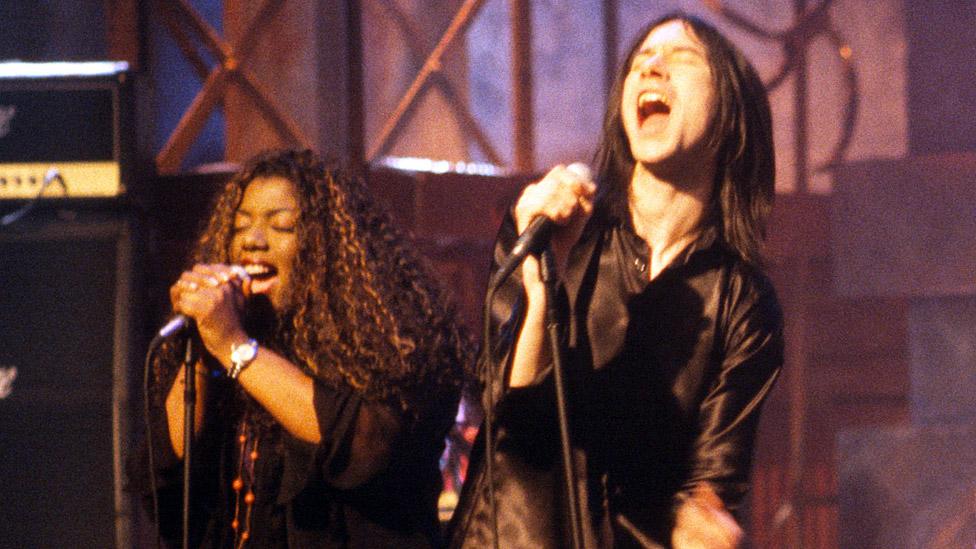
Denise Johnson and Primal Scream's Bobby Gillespie
The track list includes New Order's True Faith and 10CC's I'm Not In Love. There are also two of Johnson's own compositions. In contrast to the indie and dance tunes she guested on, the album was recorded in one or two takes with just Twemlow's acoustic guitar as an accompaniment.
"We just wanted to capture it like a live performance," he says. "She was really proud of the record, and I am now. Now she's not here, the way that we did it and the way that we kept it real has way more weight."
Magical frequencies
In life, as well as in music, Johnson kept things real. Twemlow remembers her as a "very energetic, bubbly person with a very infectious smile".
"She always treated me really well as a friend and as a work colleague," he recalls. "She always used to bake me either a cheese and onion pie or a steak pie. I'd turn up to practices and there would always be a pie for us! She was just a really nice person."
And her voice had a tone that cannot be taught, he says. "The frequencies that came out were just magical. Even if we were practising in the front room, she would light up the room. It was quite an experience."
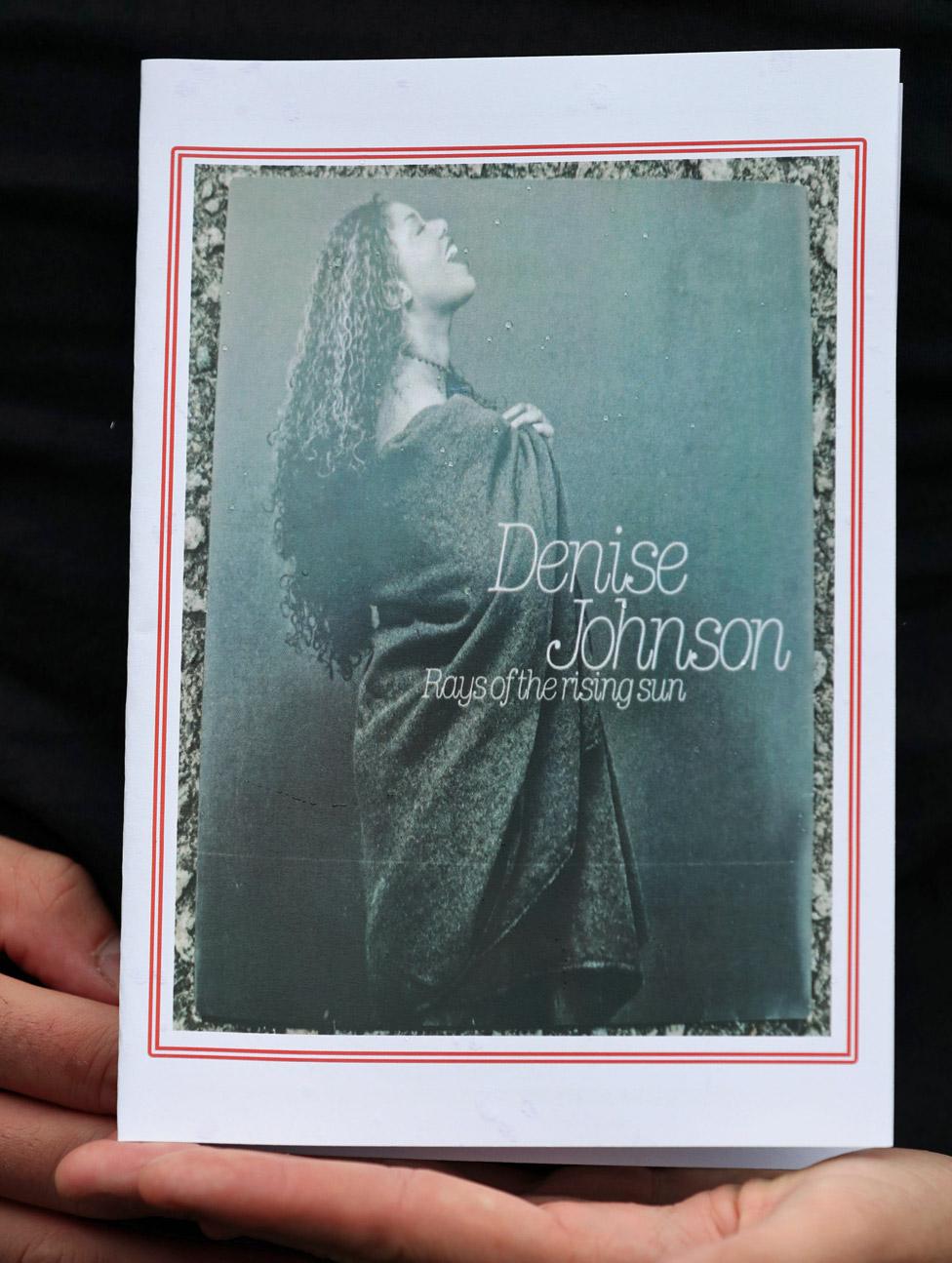
The order of service at Johnson's funeral used the cover artwork from her 1994 single Rays Of The Rising Sun

Johnson had launched a solo career before, with the single Rays Of The Rising Sun (featuring The Smiths legend Marr on guitar) becoming a club hit but failing to crack the top 40 in 1994. She went back to appearing on other peoples' records, including by Michael Hutchence, Ian Brown and the Pet Shop Boys.
"Even when she was a backing singer, she wasn't really a backing singer," Twemlow adds. "When she was in Primal Scream, she was right up front. I think she just wanted to do something for her own name to just show how good she was, and this [album] does that."
Allow X content?
This article contains content provided by X. We ask for your permission before anything is loaded, as they may be using cookies and other technologies. You may want to read X’s cookie policy, external and privacy policy, external before accepting. To view this content choose ‘accept and continue’.

Twemlow and Langford have spent the past two months making the final arrangements for the album's release. Langford, who used to run Manchester's Boardwalk venue, hasn't been able to play it since her death, however.
"I'm not ready for that. It's been quite cathartic actually feeling like I'm doing something positive for her, to give her album the final nudge over the finishing line. But I haven't listened to it yet. I'm going to get everything done, and then I'll be ready."
She says she agreed with Johnson's family that they wouldn't make the cause of death public. "I can tell you it was natural causes," Langford says. "I can tell you it wasn't Covid, and I can tell you thankfully she wouldn't have been in any discomfort for any amount of time."
'Not just a backing singer'
Her friend was "great to be around" and had "a genuine fascination and love with other people," Langford recalls. "She didn't suffer fools, but she was just so warm and a lot of love came out of her, so a lot of love came back to her."
As for her career, she "totally identified with everything that was said" in the Oscar-winning 2013 film 20 Feet From Stardom, which put the spotlight on backing singers - mostly black women - and the raw deal they often get.
"She wasn't just a backing singer," Langford says. "She did a lot of collaboration with bands like ShadowParty or A Certain Ratio - she co-wrote quite a few bits and pieces, or she'd have an input into the vocal melody. She wasn't just sitting in a studio and somebody said, 'Sing this.' She was very much involved."
The album, then, is the fulfilment of her musical vision and her talent. "It's her, and it's what she wanted to present to us," Langford adds.
"It's how she wanted to present her music to us, and it didn't hang on some producer or some band or anything else. It was just her."

Follow us on Facebook, external, or on Twitter @BBCNewsEnts, external. If you have a story suggestion email entertainment.news@bbc.co.uk, external.
- Published27 July 2020
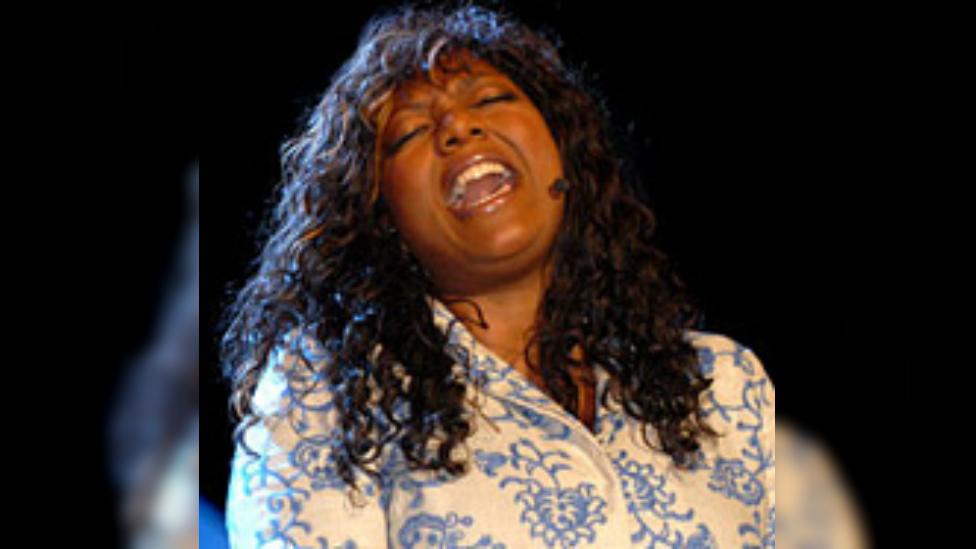
- Published19 August 2020
